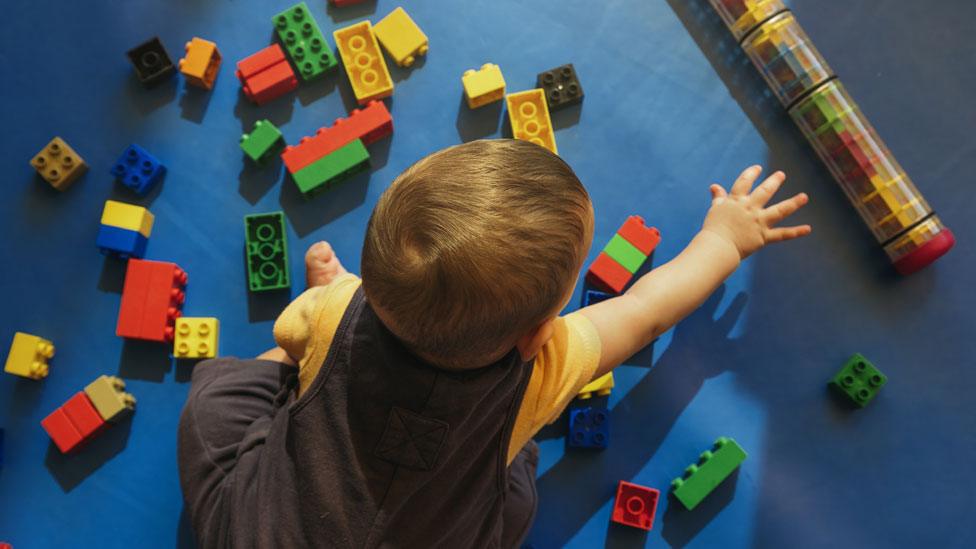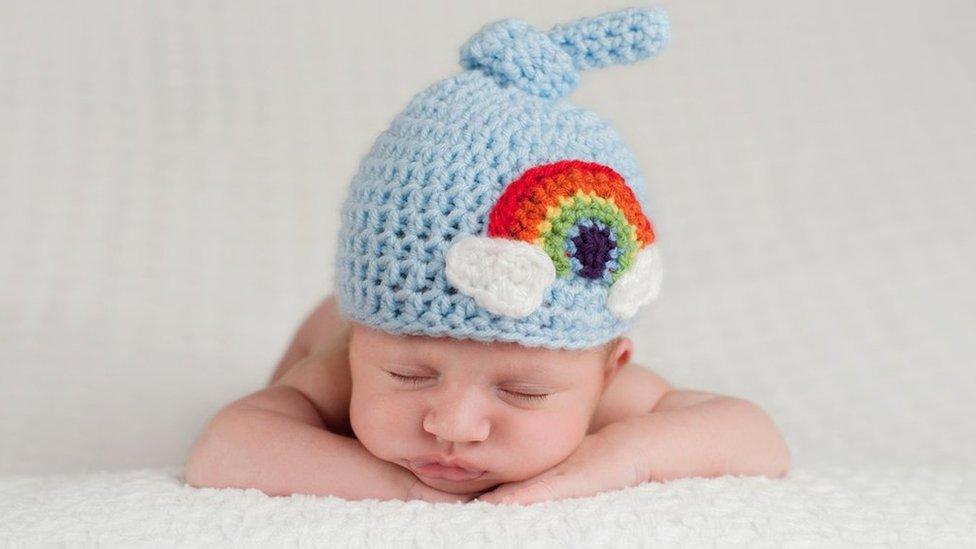Highlands-based Mellow Babies project aims to help mums
- Published

The research will examine mothers' interactions with their young children
A major study aims to improve the life chances of babies and mothers struggling with problems such as depression, anxiety or addiction.
The £1.3m Mellow Babies project is the largest medical trial of its kind to be carried out in the NHS Highland area.
More than 200 women and babies, aged between six and 18 months, have been sought for the research.
They will join groups that will work with each other as well as a variety of medical professionals.
The project will seek to try to improve the women's emotional state and their relationship with their babies.
Part of it will see the mothers record their own video footage at home of their interaction with their children which will be discussed in the support groups.
Research suggests that the first three years of a child's life are crucial for their development and that long-term problems can be prevented if the right help and support is available.

The study is the largest of its kind ever undertaken in the NHS Highland area
Prof Philip Wilson, director of University of Aberdeen's Inverness-based Centre for Rural Health, is leading the project.
He said: "The group-based parenting programme is designed to reduce the mother's stress levels, to improve the interaction between mothers and their babies and ultimately to improve the child's brain development.
"A lot of the early work will be about enabling the women to feel safe and comfortable in each other's company and able to share the difficulties they might be facing.
"There is very good evidence that the early development of children, before the age of three years, when most brain development takes place, is crucial for later development."
Prof Wilson said studies that have followed children through from birth into adulthood had shown, "quite conclusively", that it was possible to predict by the age of three which people were at highest risk to a whole range of difficulties that occur in adult life, such as mental health problems, anti-social behaviour and addictions.
He added: "The outcome measures that we are particularly interested in are children's language and social and emotional wellbeing when they are 30 months old."